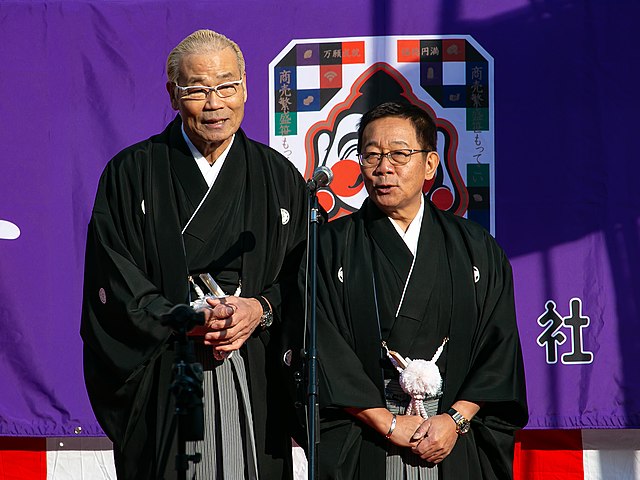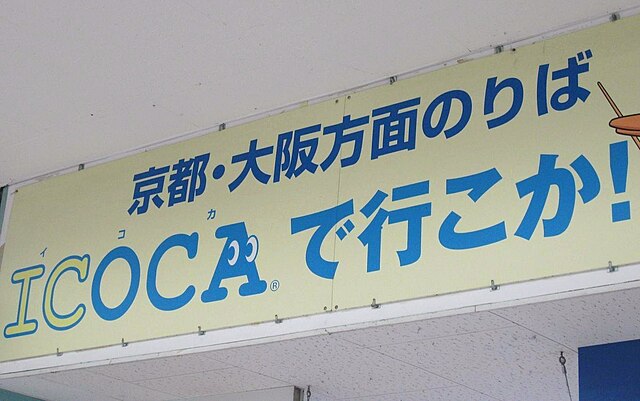Manzai is a traditional style of comedy in Japanese culture comparable to double act comedy.
A pair of manzai performers at a New Year celebration; the tsukkomi at front, the boke behind him (artist unknown, 19th-century Japanese painting)
Print depicting two manzai comedic actors, also in a New Year setting; c. 1825
Hanabishi Achako and Yokoyama Entatsu established the talk show-centered manzai style. They were active since 1919.
"All Hanshin-Kyojin", active since 1975
The Kansai dialect is a group of Japanese dialects in the Kansai region of Japan. In Japanese, Kansai-ben is the common name and it is called Kinki dialect in technical terms. The dialects of Kyoto and Osaka are known as Kamigata dialect , and were particularly referred to as such in the Edo period. The Kansai dialect is typified by the speech of Osaka, the major city of Kansai, which is referred to specifically as Osaka-ben. It is characterized as being both more melodic and harsher by speakers of the standard language.
A label in Kansai dialect. The advertisement, Iwashi o tabena akan!, translates as "You must eat sardines!"
A poster written in Kansai dialect. The warning, Chikan wa akan de. Zettai akan de, translates as "Groping is out. Absolutely out."
A caution written in Kansai dialect. The warning, Kii tsuke yā, Anta no koto ya de, Sono baggu, translates as "Take care! Do not let your bag get snatched!"
A signboard written in Kansai dialect at Kusatsu Station in Kusatsu, Shiga. The message, ICOCA de iko ka!, translates as "Let's go with ICOCA!" ICOCA is a rechargeable contactless smart card. Its name is a play on the Kansai phrase "iko ka!" ("Let's go!").








